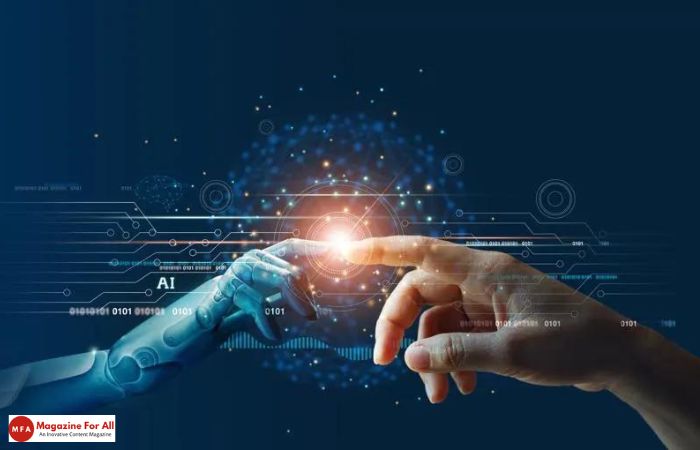The integration of Artificial Intelligence in cybersecurity marks a transformative era in how cyber threats are managed. AI’s capacity to rapidly analyze massive volumes of data, identify patterns, and predict potential threats is revolutionizing cybersecurity. This technological advancement, championed by experts like Anne Neuberger, offers unparalleled opportunities to enhance security measures, automate complex processes, and stay ahead of increasingly sophisticated cyberattacks.
Table of Contents
Advantages of AI in Cybersecurity
Enhanced Threat Detection
AI algorithms identify and respond to threats more efficiently than traditional methods. By analyzing data patterns, AI can detect anomalies that indicate potential security breaches, often identifying threats before they become active.
Automating Repetitive Tasks
AI excels in automating repetitive, time-consuming tasks. This automation frees cybersecurity professionals to focus on more strategic, high-level work, increasing overall productivity and efficiency.
Predictive Analytics
AI’s predictive capabilities are crucial for proactive cybersecurity. By analyzing trends and historical data, AI can forecast potential security threats, allowing organizations to implement preventative measures in advance.
The Risks Associated with AI in Cybersecurity
Despite its benefits, integrating AI into cybersecurity has challenges and risks.
Dependence on Data Quality
AI systems are only as good as the data they analyze. Poor quality or biased information can lead to inaccurate conclusions, potentially compromising security measures.
Evolving Cyber Threats
As cybersecurity tools become more advanced, so do cyber threats. Hackers also leverage AI, leading to an arms race between security professionals and cybercriminals.
Ethical and Privacy Concerns
AI’s ability to analyze vast amounts of data raises significant privacy concerns. A fine balance exists between enhancing security and infringing on individual privacy rights.
The Human Element in AI-Driven Cybersecurity
While AI offers substantial benefits, it cannot replace human professionals’ nuanced understanding and decision-making capabilities. The human element remains critical in interpreting AI-generated insights and making informed decisions about cybersecurity strategies, a perspective strongly advocated by cybersecurity leaders such as Anne Neuberger.
Collaboration between AI and Human Expertise
The most effective cybersecurity strategies involve a collaborative approach, combining AI’s computational power with human expertise and intuition. This synergy ensures a more robust and effective security posture.
Continuous Learning and Adaptation
Cybersecurity professionals must continuously update their skills and knowledge to keep pace with rapidly evolving AI technologies. This ongoing learning is essential for effectively managing AI-driven cybersecurity tools.
Future Outlook of AI in Cybersecurity
Looking ahead, the role of AI in cybersecurity is poised to grow exponentially. With advancements in machine learning and AI technologies, cybersecurity systems will become even more sophisticated and capable.
Staying Ahead of Cyber Threats
As cyber threats evolve, AI systems must continuously adapt and improve. Ongoing research and development in AI will play a pivotal role in staying ahead of these threats.
Ethical and Regulatory Considerations
As AI becomes more entrenched in cybersecurity, ethical and regulatory considerations will become increasingly necessary. Establishing clear guidelines and regulations will be crucial to ensure that AI is used responsibly and ethically in cybersecurity.
The Importance of Global Collaboration
The fight against cyber threats is a global challenge. International collaboration and sharing of knowledge and resources will be vital for harnessing the full potential of AI in cybersecurity.
Conclusion: A Balanced Approach to AI in Cybersecurity
AI presents both significant opportunities and challenges in the realm of cybersecurity. By leveraging AI’s strengths, being aware of its limitations and risks, and emphasizing the crucial role of human oversight, organizations can navigate the complexities of this dynamic field. The future of cybersecurity lies in a balanced approach, where AI and human expertise work in tandem to create a more secure digital world.
Related Post: Gaming in 2023: The AI-Powered Future































































